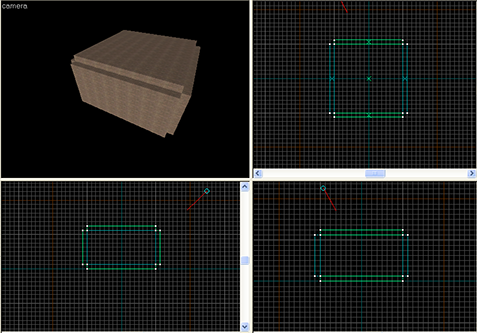User talk:Rockn-Roll/Beginner Portal Map Tutorial: Difference between revisions
(whoops) |
m (whoops x 2) |
||
| Line 7: | Line 7: | ||
To add, please refer to the tutorial: http://developer.valvesoftware.com/wiki/Creating_a_Room. Also, I noticed you mentioned somewhere in your tutorial that you are to move a brush "18 units" up. The grids you see in Hammer, unless the size is set to 1x1, does not represent one unit. | To add, please refer to the tutorial: http://developer.valvesoftware.com/wiki/Creating_a_Room. Also, I noticed you mentioned somewhere in your tutorial that you are to move a brush "18 units" up. The grids you see in Hammer, unless the size is set to 1x1, does not represent one unit. For instance, the popular standard width for walls that are in contact with the void are generally 16 units thick. In your case, if the grid size was set at 32x32, then 18 spaces would be 576 units. --[[User:Mattshu|Mattshu]] 23:40, 11 February 2011 (UTC) | ||
Revision as of 15:42, 11 February 2011
There appears to be a major flaw in your tutorial: You are suggesting intersecting brushes, which will both crop textures and (from the outside) create graphics glitches. Brushes that merely touch corners does not create leaks. --MossyBucket (formerly Andreasen) 21:43, 11 February 2011 (UTC)
Agreed, I really hope you haven't been constructing entire levels with overlapping brushes. The generally accepted method is as shown here: Thelonesoldier 23:09, 11 February 2011 (UTC)
To add, please refer to the tutorial: http://developer.valvesoftware.com/wiki/Creating_a_Room. Also, I noticed you mentioned somewhere in your tutorial that you are to move a brush "18 units" up. The grids you see in Hammer, unless the size is set to 1x1, does not represent one unit. For instance, the popular standard width for walls that are in contact with the void are generally 16 units thick. In your case, if the grid size was set at 32x32, then 18 spaces would be 576 units. --Mattshu 23:40, 11 February 2011 (UTC)
